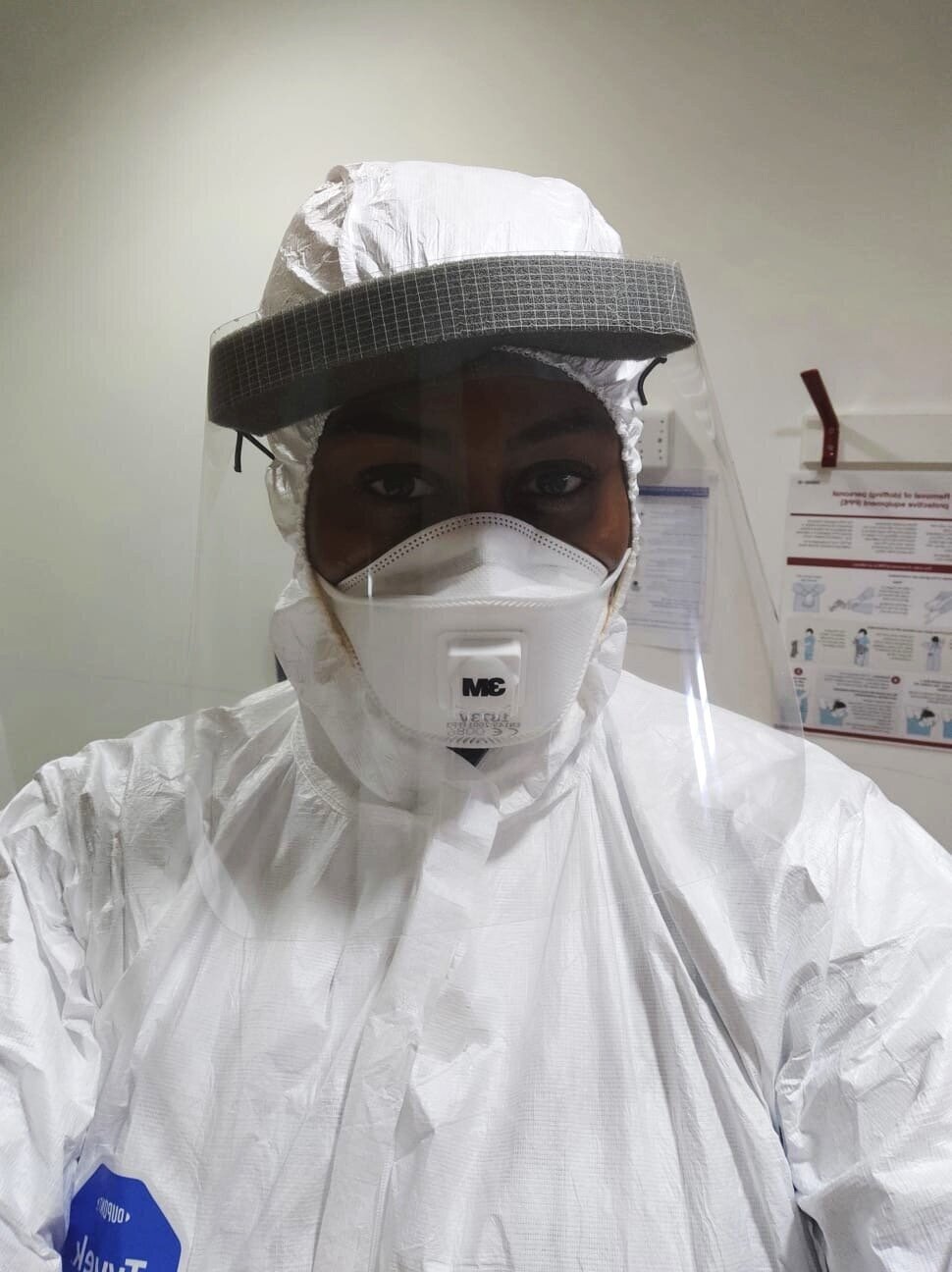In conversation with Dr Zara Benjamin-Laing
We had a chat with Dr Zara to discover what a day in the life at Birmingham hospital amid the coronavirus pandemic.
Key workers have been working tirelessly on the front line throughout our nation’s battle against coronavirus. We caught up with NHS doctor, Zara Benjamin-Laing, to discover how day-to-day life has changed at the hospital she works at amid the current pandemic.
Image: Zara Benjamin-Laing
Dr Zara Benjamin-Laing is a Senior House Officer (SHO) currently working in Birmingham. She completed her medical degree at the University of Southampton and once she had graduated she moved to Birmingham where she is now on her way to becoming a medical physician. Zara is passionate about global health spending. She has undertaken medical elective placements in Malaysia and Sri Lanka, has been involved in health improvement projects in Ghana, and also participates in a variety of other global healthcare initiatives.
A typical day before the pandemic...
Before COVID 19, I was working on a busy short-stay medical and acute medical ward in a tertiary hospital. Prior to patients reaching my ward they will have been reviewed in the emergency department and are thought to require further medical input – opposed to surgical input.
To begin my day, I prepare a list of patients and start my ward round either with the consultant or independently. This involves looking at a patient’s medical history, conducting examinations, or investigations and then formulating a management plan based on my findings. We often manage patients with community-acquired pneumonia which is an infection in one or both of a person's lungs. Patients often present symptoms such as shortness of breath, wheezing and coughing which can often be combated with antibiotics. At times we may also need to provide these patients with steroids, fluids and painkillers.
During my ward rounds I assess patients to ensure they're improving clinically, and if they are not then I alter their management plan accordingly. This may be by escalating oral antibiotics to something stronger like intravenous antibiotics.
Following this I usually like to take a little break as medical ward rounds can often take 3 - 4 hours. After this I start my "jobs". Jobs are the list of tasks that I have made for all the patients reviewed on the ward round. This consists of a huge range of tasks, including prescribing new medications, booking specific tests such as echocardiograms - "jelly scans of your heart that allow us to see the structure of your heart" - or speaking to other specialists for advice on managing other conditions that patients may present with.
Image: Zara Benjamin-Laing
A typical day during the corona pandemic...
Since COVID-19, I have experienced a significant change in the way I work, the hours I work and where I work. Previously, I had a typical 8-hour working day with occasional on-call shifts. These consisted of a 12-hour day or a night shift.
However, since the pandemic my shifts are largely based on the acute medical unit and COVID-19 wards and are predominately 8-hour shifts. My time is now mainly spent clerking patients and/or managing those with COVID-19.
A typical day on a COVID-19 ward involves a ward round but these are not like I'm used to. Before entering the ward, I need to ensure I am protected with personal protective equipment – this includes a gown, a surgical facemask, gloves and a visor. My clinical reviews are often to assess how much respiratory support patients need and if antibiotics would be of benefit to them. Following this, I complete jobs for these patients, which often includes re-reviewing patients and assessing their oxygen requirements.
Things that I’ve noticed throughout the pandemic…
There has been an atmosphere of uncertainty around medical practices as COVID-19 is still not fully understood. The focus is on improving respiratory support and making patients as comfortable as possible. There have been significant changes to hospital visitation policies, and so emotions are further heightened when a patient deteriorates and is given a poor prognosis. There are occasions where I have spent the day on the phone providing updates to patient’s relatives and loved ones who are not permitted to visit the hospital themselves. This takes a significant toll on both patients and their relatives, so we try and keep them involved as much as possible.
There has been a significant change in my shifts as a result of a huge reduction in numbers of non-COVID patients attending hospital. Despite this change to patient numbers, my shifts have become more intense as those that do arrive at the hospital (with suspected COVID-19) are often extremely poorly, commonly with a poor prognosis and significant medical support is often necessary.
Plus, there is now an element of fear felt when at work. A fear of contracting COVID-19.
Remaining positive during the pandemic…
The burden of tackling COVID-19 has largely been placed on the NHS, which although has presented its challenges has also seen a surge in support for the NHS and key workers. Team morale has seen a huge boost.
Words by Dr Zara Benjamin- Laing





